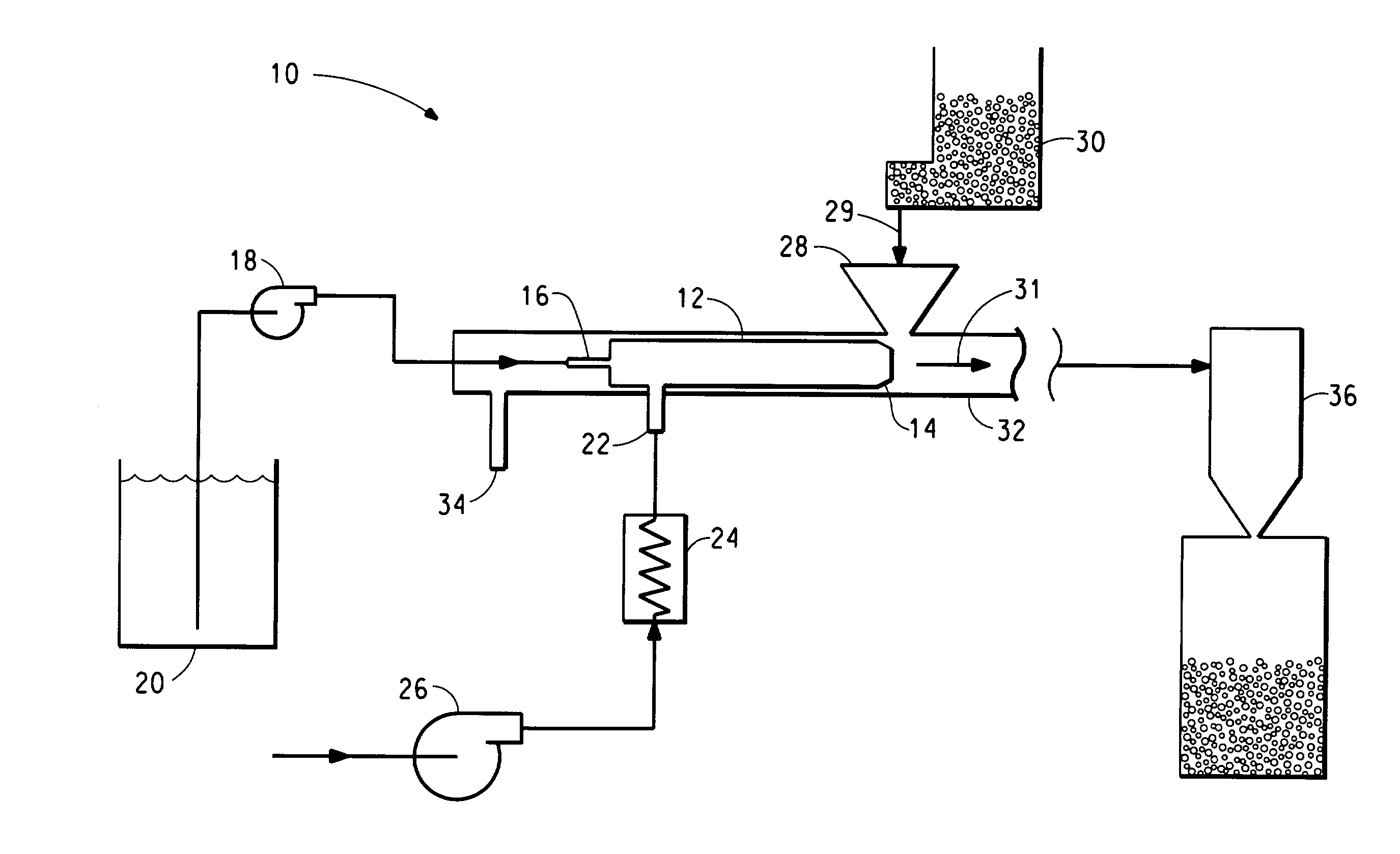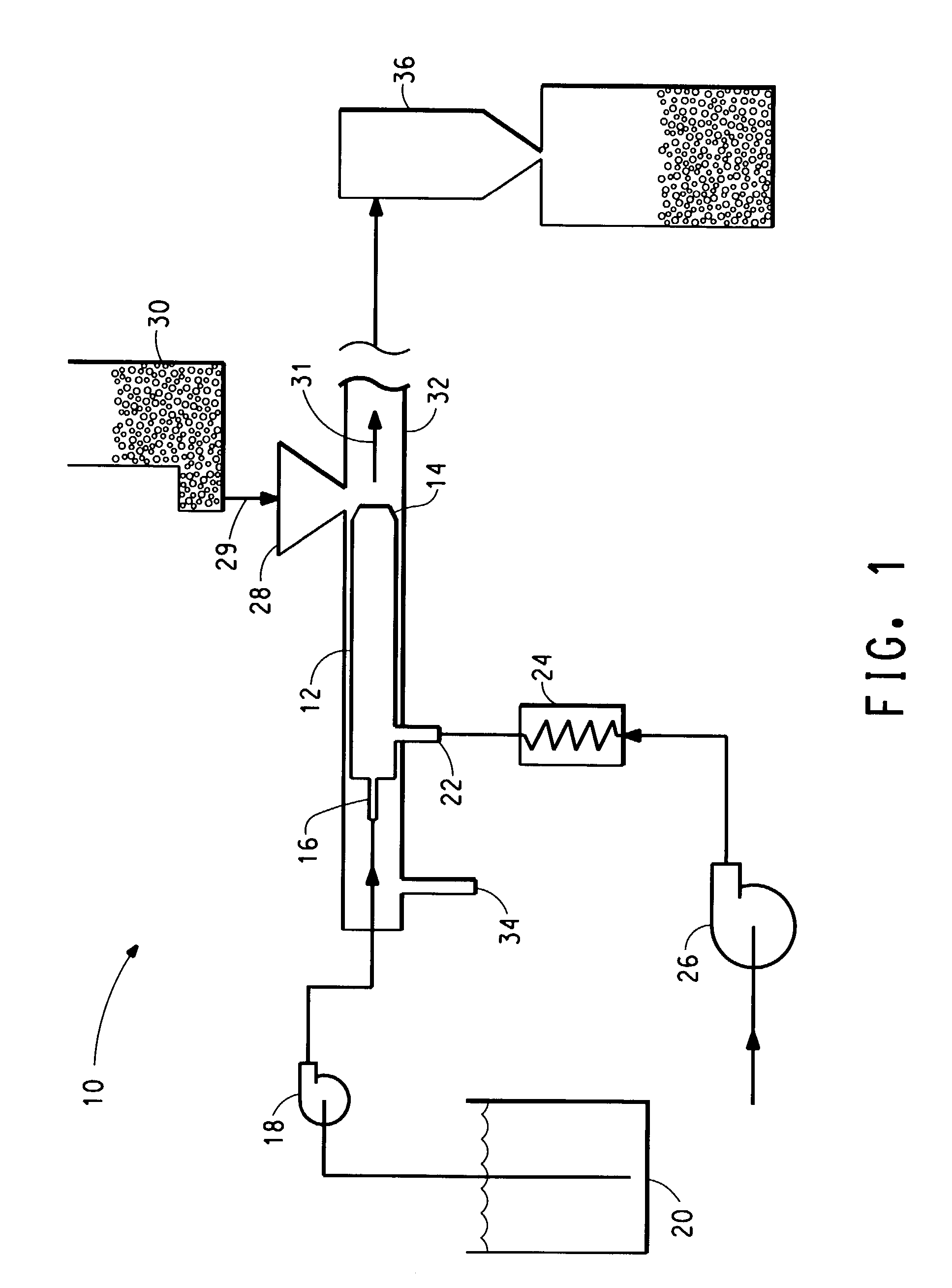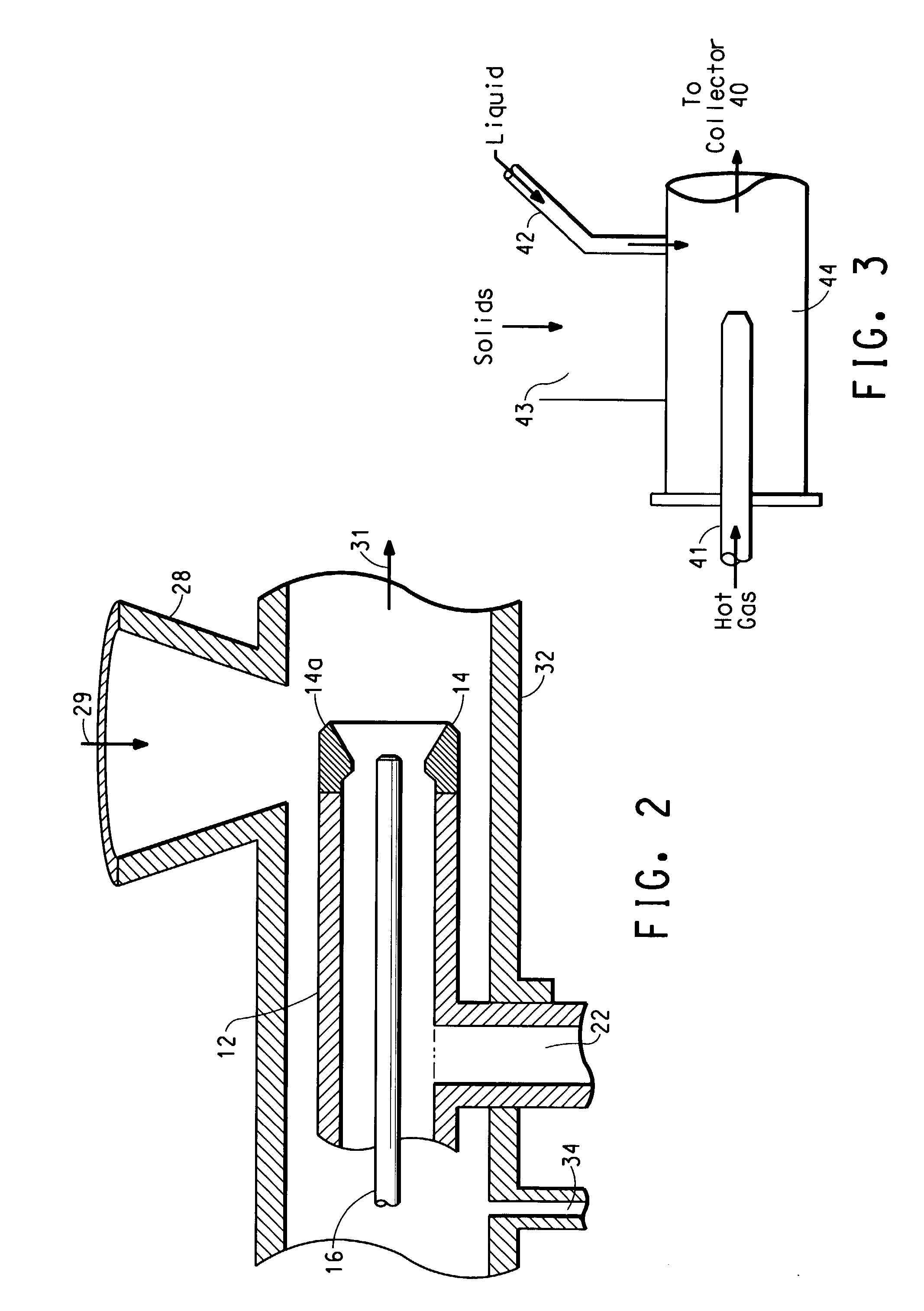Process for dry coating a food particle or encapsulating a frozen liquid particle
a technology of frozen liquid and food particles, which is applied in the field of dry coating a food particle or encapsulating a frozen liquid particle, can solve the problems of large waste stream, difficult solids recovery, and substantial non-agglomeration of coated particles
- Summary
- Abstract
- Description
- Claims
- Application Information
AI Technical Summary
Benefits of technology
Problems solved by technology
Method used
Image
Examples
example 1
Coated Cereal
[0103]A cereal with a “doughnut” morphology and a diameter of about 15 mm was coated with a sugar solution to produce a sugar coated cereal in a single coating and drying process. The apparatus as shown in FIG. 1 utilized a nozzle with a ¼ inch center tube and a nozzle throat of 0.36 inches diameter. The conveying body was 1.25 inches in internal diameter with a length of 14 inches. The cereal containing 2% residual moisture was metered to the system at 688 grams / minute using a vibratory type feeder (Syntron). A sugar solution at 116° C. with a concentration of 86% sugar in water was metered at 200 g / min. to the center tube using a peristaltic metering pump. Air at 300° C. and 15 psig was supplied to the nozzle. The air was used to atomize the sugar solution, produce a negative pressure in the mixing zone to induce the addition of the dry cereal, and provide the heat for evaporating the residual moisture from the sugar solution. The product of the mixing / drying was coll...
example 2
PUFA Loaded Soy Nuggets Coated with Sucrose
[0104]A coating apparatus as in FIG. 1 comprising a 1¼ inch by 12 inch coating body with a 0.369 inch diameter nozzle and a 0.25 inch O.D. liquid feed tube was operated at an air pressure of 40 psig using air at 20 C. The discharge of this apparatus went into a filter bag collector to separate the coated material from the air. A Syntron vibrating feeder was used to meter the FXPH-0294 soy nuggets with general elongated shape of approximately 1.5 mm×3 mm at a rate of 1.2 kg / min. Polyunsaturated fish oil (PUFA) was metered to the system at 539 g / min using a peristaltic pump. The coated soy nuggets were collected with a 31% loading of PUFA, based on mass balance. They had the visual appearance of un-coated soy nuggets.
[0105]The PUFA coated soy nugget particles described above were further processed to put a layer of sucrose on the external surface of the PUFA-loaded soy nugget. The apparatus as described above was used at 40 psig using heated ...
example 3
Puffed Rice Cereal Coated with Sucrose
[0106]This experiment concerns coating a puffed rice cereal with a sugar solution, and recovering a dry sugar-coated cereal with no net moisture gain.
[0107]The apparatus shown in FIG. 1 was used with a 0.36 inch diameter nozzle throat and a ¼ inch O.D. stainless steel liquid inlet line and was operated using air at 32 psig and 154° C. The cereal (Food Lion's “Crispy Rice” brand puffed rice) was metered using a Syntron vibrating feeder at a rate of 458 g / minute. A 60% (w / w) aqueous solution of sucrose at ambient temperature was metered at 180 g / min (72 g / min water and 108 g / min sugar) through the liquid center tube using a peristaltic metering pump. The product of the mixing was collected in a polyester twill filter bag.
[0108]A Cenco brand moisture balance was used to measure the total water in the cereal before and after coating. The initial moisture of the uncoated cereal was 2.1%. The moisture level was 2.0% after coating, thus, showing that a...
PUM
 Login to View More
Login to View More Abstract
Description
Claims
Application Information
 Login to View More
Login to View More - R&D
- Intellectual Property
- Life Sciences
- Materials
- Tech Scout
- Unparalleled Data Quality
- Higher Quality Content
- 60% Fewer Hallucinations
Browse by: Latest US Patents, China's latest patents, Technical Efficacy Thesaurus, Application Domain, Technology Topic, Popular Technical Reports.
© 2025 PatSnap. All rights reserved.Legal|Privacy policy|Modern Slavery Act Transparency Statement|Sitemap|About US| Contact US: help@patsnap.com



